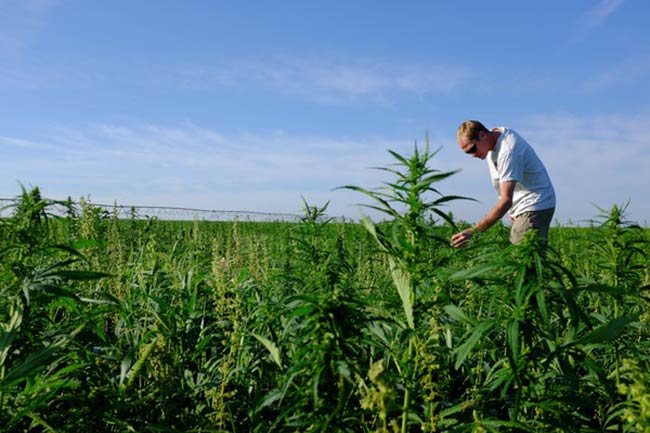THC in cannabis prove to help prevent spread of HIV: study shows

- By Ethan A. Huff - Wednesday, March 19, 2014
Should it ever be withdrawn from the federal government's most restrictive list of "dangerous drugs" and instead be treated as the honest medicine that it truly is, marijuana, or more properly cannabis, would almost surely put the pharmaceutical industry out of business. There are a number of reasons for this, and one of them has to do with how cannabis can help prevent the spread of HIV in test-positive patients without causing harmful side effects.
A new study out of Louisiana State University found that administering a daily dose of tetrahydrocannabinol, or THC, to monkeys infected with SIV, the non-human primate version of HIV, helped protect the creatures' immune systems against the spread of HIV. Specifically in the monkeys' stomachs, which is where HIV tends to harbor and spread infection, THC helped minimize the damage inflicted upon intestinal tissue.
Published in the journal AIDS Research and Human Retroviruses, the study involved giving SIV-infected monkeys a daily dose of THC for 17 months, during which time they were individually analyzed for markers of HIV spread. At the end of the study period, the team involved with the research learned that THC helps not only protect stomach tissue against disease progression but also promote a healthy population of normal-functioning cells around damaged tissue, which could indicate its potential to reverse and even cure the disease.
"These findings reveal novel mechanisms that may potentially contribute to cannabinoid-mediated disease modulation," wrote Dr. Patricia Molina, the study's lead author, about the findings. "It adds to the picture and it builds a little bit more information around the potential mechanisms that might be playing a role in the modulation of the infection."
Federal government prohibition of cannabis forcing millions to needlessly suffer
The findings are promising, and they affirm earlier ones made by Dr. Molina back in 2011 concerning the potential of THC to lengthen lifespan in HIV-infected patients. Medicinal THC was also shown in a 2012 study out of the Temple University School of Medicine in Philadelphia to help protect the brain against HIV-infected cells, even in patients with late-stage HIV and AIDS.
And yet at the same time, continued federal prohibition of this all-natural plant, which exists in literally thousands of unique, therapeutic forms, is hampering the ability of researchers to better understand the full clinical potential of cannabis. Not only are researchers unable to obtain the necessary federal funding for cannabis research, but they are also restricted from testing the medicinal plant on actual humans in clinical trials, which is considered the gold standard of therapeutic inquiry.
Because of this, the approximately 1.1 million Americans who currently live with HIV have few options other than to take harsh antiretroviral drugs, which, besides causing adverse events like nausea, pancreatitis, and peripheral neuropathy, have not been shown to actually cure the disease. And whether or not there is a strain of cannabis out there that has this capacity remains difficult to establish due to entrenched government prejudice against this healing herb.
"Since the federal government continues to classify marijuana as a Schedule I drug -- the most restrictive of the five categories under the Controlled Substances Act -- it's difficult for scientists to get funding for any research in this area," writes Tara Culp-Ressler for ThinkProgress.org. "The government controls access to a small legal supply of marijuana for research purposes, and often refuses to back projects that could lead to important treatments simply because they require cannabis."
"Researchers have repeatedly complained that drug prohibition stifles scientific innovation."
Sources for this article include:


